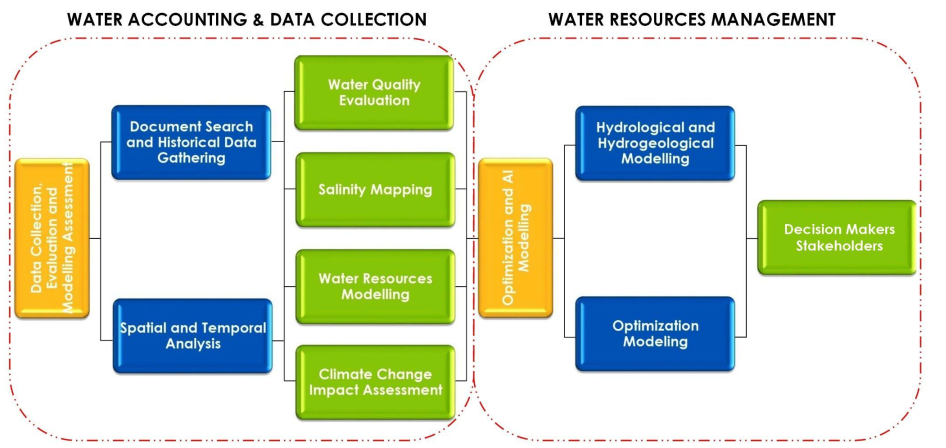Methodology
The project’s approach is practical and data-driven, built around two core activity streams that reinforce each other.
(1) Water Accounting and Data Collection Activities.
(2) Operational Activities Devoted to Water Resource Management.
The integration of machine learning (ML) techniques holds significant importance for advancing water management strategies, understanding the dynamics of saltwater and water pollution levels for highlighting the importance of these factors in understanding groundwater quality and its impact on agriculture, ecosystems and freshwater resources.
Prediction of groundwater levels will help to identify areas vulnerable to water pollution and salt water intrusion (SWI), hotspots where water pollution and/or salinity levels exceed threshold limits, and to detect regions at risk of water pollution, such as areas with high levels of contaminants or excessive nutrient loading.
The predicted data will be invaluable to select planting and irrigation schedules, adapt crop choices to changing salinity levels in the soil and water and overall improve sustainable water management and agricultural planning. In turn, we believe that the use of these automated ML techniques will encourage policymakers and stakeholders to engage in mitigating the adverse effects of water pollution and SWI.

